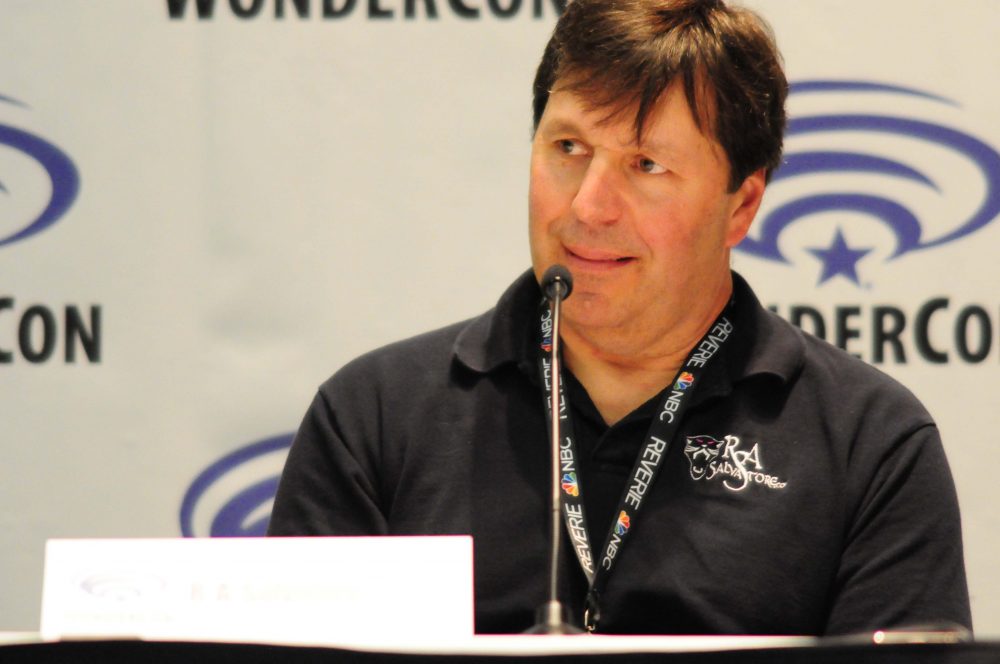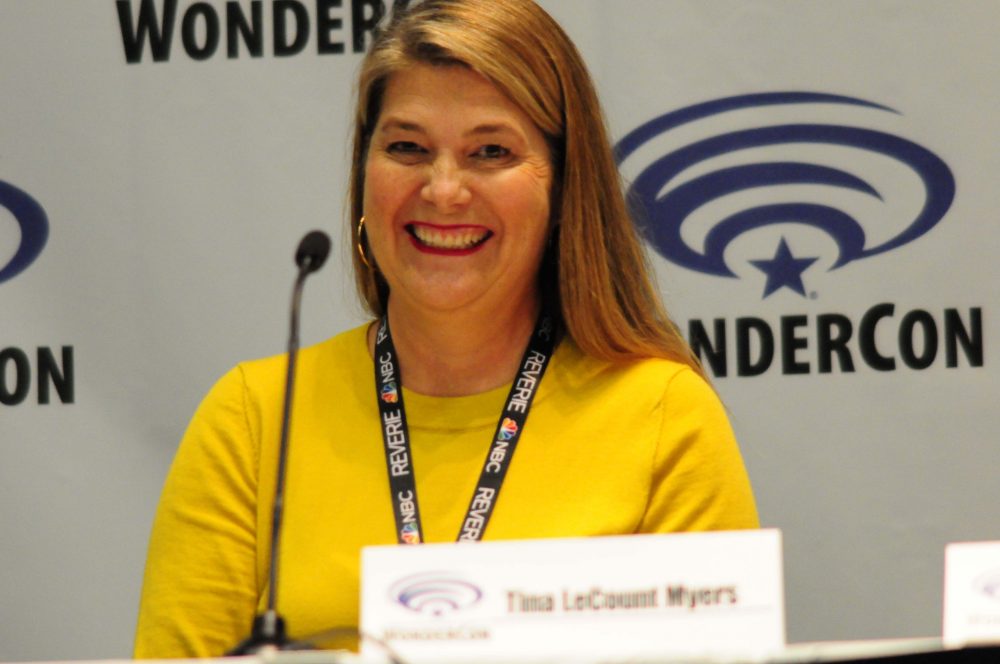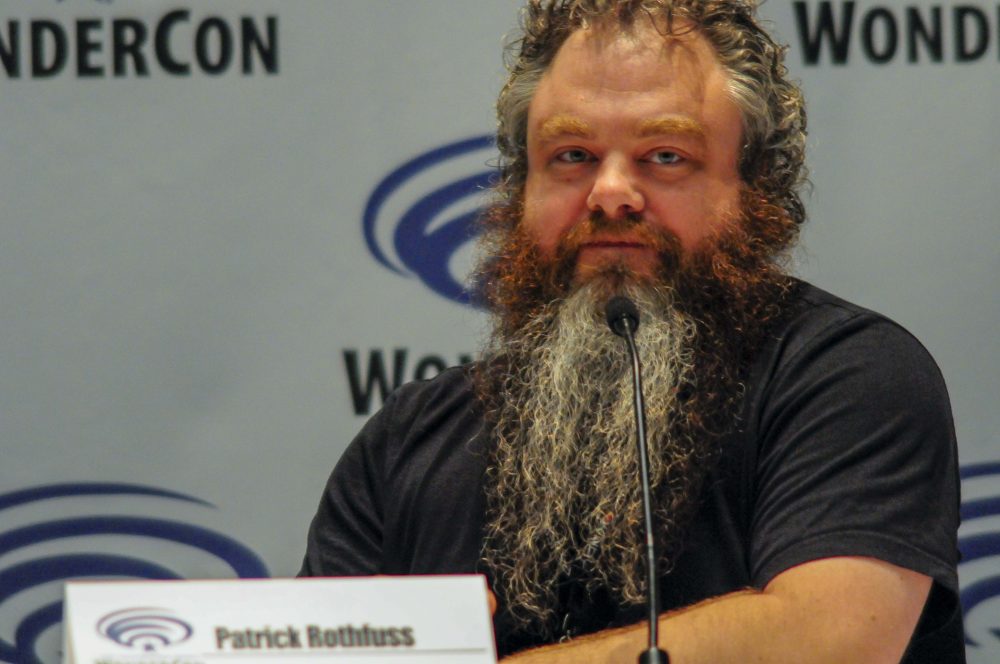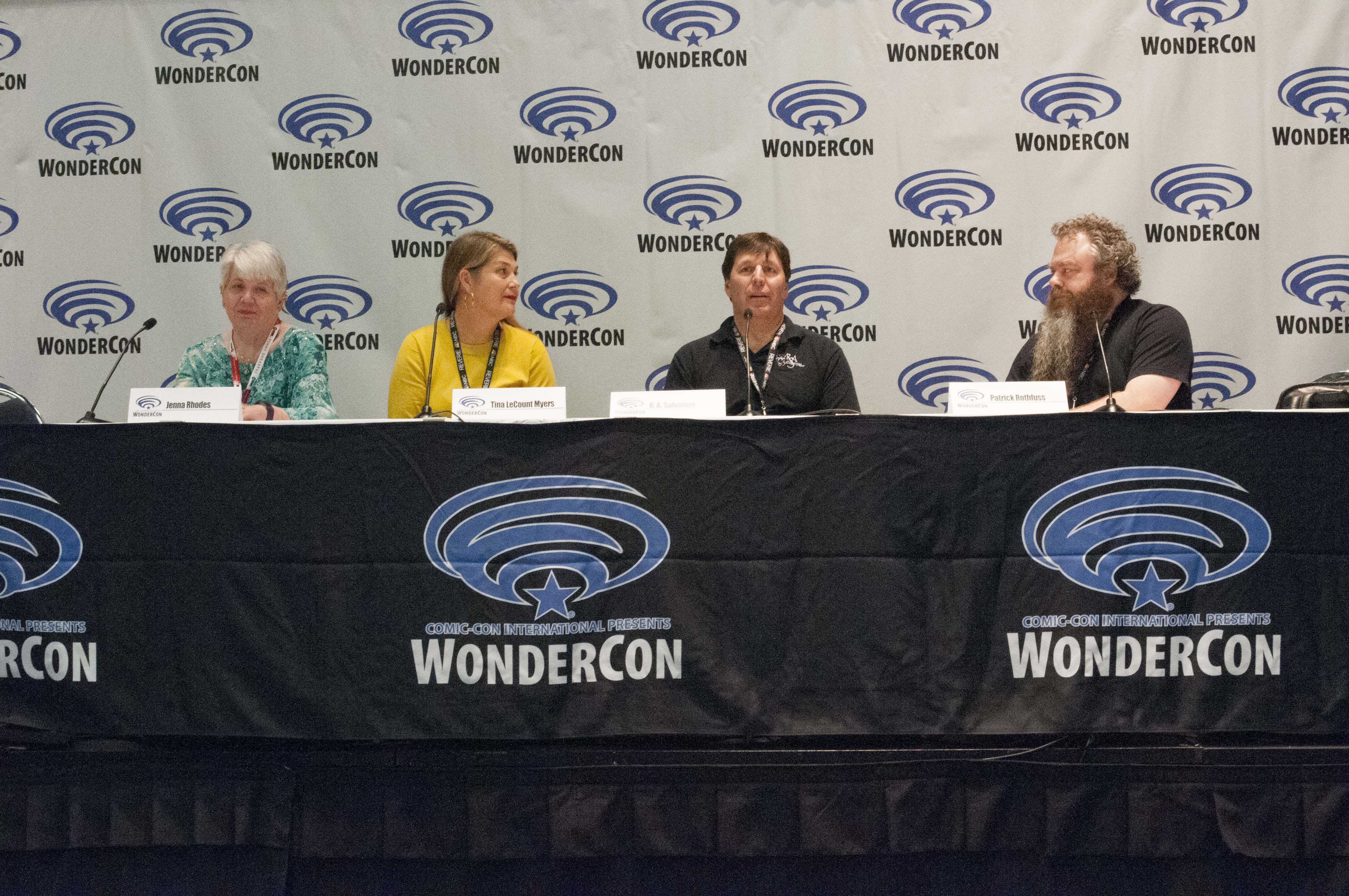Novels like J.R.R. Tolkien’s The Hobbit and Neil Gaiman’s American Gods are all considered literary masterpieces, but fantasy novels didn’t always get the recognition they do today. Even still there are those who see fantasy as pale comparisons to the likes of Hemingway, Buck, and Steinbeck. If this is the case, why do authors still choose to write in the fantasy genre?
At this year’s WonderCon, this question and others were heavily discussed at the “Gather ‘Round the Campfire: Telling Tales” panel. In attendance were authors Jenna Rhodes, Tina LeCount Myers, R.A. Salvatore, and WonderCon guest of honor Patrick Rothfuss.
The first question presented was, “What was it that first made you decide to tell stories?” R.A. Salvatore, author of The Demon Wars Saga, said he more-or-less fell into it. “I was a Freshman in college and a math major. My sister had given me The Hobbit and The Lord of the Rings books… That year, it was the blizzard of ’78. So, I spent the entire time snowed in reading. When I was done, I wanted more, but back then there weren’t many fantasy books, so I decided to write my own… It’s how I [now] make sense of the world… It’s a compulsion.”

For author Tina LeCount Myers, she had grown up in a “proto-hippy” household, where her parents had made an astrological chart for her when she was just three-years-old. It said she should be a writer, so from then on, her parents reminded her of this. “When things wouldn’t go right in life for me, my mom would say something like, ‘See, it’s because you should be a writer,’” said Myers. It wouldn’t be until her husband and his friend tried their hand at NaNoWriMo (National Novel Writing Month) in 2005 that Myers followed, unwittingly, her parents’ advice. Those unfamiliar with NaNoWriMo, the aim is to start the draft of a story on November the 1st and to finish before the end of November the 30th with at least 50,000 words. Myers decided to get in on it too. “They dropped out the second week,” said Myers, “but I kept going!” She didn’t finish the novel until 2013, when an inner voice told her she needed to do it. In 2016, she got an agent and then got the novel sold.

Jenna Rhodes, one of the many pseudonyms she uses, writes predominately in science fiction, fantasy, and mystery novels. For her, she writes because she feels she needs to. “There are forces in my head; characters whose stories want to be told.” Rhodes also added, “My mom was a writer too, though not as successful as me… So, I knew I wanted to tell stories as a child.”
To Patrick Rothfuss, bestselling author of In the Name of the Wind and The Kingkiller Chronicle series, he writes because, “it’s fun.” What he did not find fun was the transition of writing for fun to that of making a living. “It’s actually difficult.” This answer didn’t completely satisfy him, so he continued. “I am a compulsive story teller, but not necessarily a compulsive writer… Now, notice I’m not directly answering the question, but rather telling a narrative of short stories.”
As to what about the fantasy genre appeals to these writers, Rothfuss went first saying, “A few times when I’ve gotten interviewed, they’ve said to me, ‘Your books are great… Why do you write fantasy?’” Rothfuss emphasizing as if they were uttering a dirty word. “All the books I interacted with as a kid were fantasy. I mean, I guess I could have read the Encyclopedia Britannica’s we had and wrote encyclopedias. But, I can do all the things I want to do in fantasy, plus MAGIC! So, why do I want to write anything else?” This elicited a great applause from the room.

Tina’s background with fantasy differed vastly from that of Rothfuss’. “I’d never read fantasy before. Never heard of Tolkien either,” she said, which triggered a few gasps. “I was from a proto-hippy family, so I was made to read Tolstoy. When I was finally read Tolkien, it was exciting… Fantasy let’s us have those epic-mythos moments that we don’t get at home.”
The idea of writing fictions other than fantasy seemed ridiculous to R.A. Salvatore. “I see it differently,” he began. “If you’re writing fiction, you’re writing fantasy. Period.” Salvatore elaborated further, saying that regardless of what genre an author writes, they will be limited in what they can do. One of the biggest complaints against fantasy is that it’s easy to write. Rothfuss added to this saying, “There are only two questions you can answer if you’re going to write: What is it, or what if. No genre but fantasy lets you answer so successfully for ‘what if.’”
For Jenna Rhodes, her answer of why she writes for fantasy was simple. “Fantasy leaves you with the expectation of hope.”
There is no denying that these authors are wonderful writers. It pangs me to know that some people believe their talents are being wasted on fantasy, as I love the genre and all of its subgenres. I say let them write on, because in the end a writer should be writing for themselves.








“Novels like J.R.R. Tolkien’s The Hobbit and Neil Gaiman’s American Gods are all considered literary masterpieces”
Wha??? I mean, I love both novels, but that is absolutely not true for either novel. Literature people have argued for decades over Tolkein and Gaiman isn’t in that discussion beyond beautiful prose.
Comments are closed.